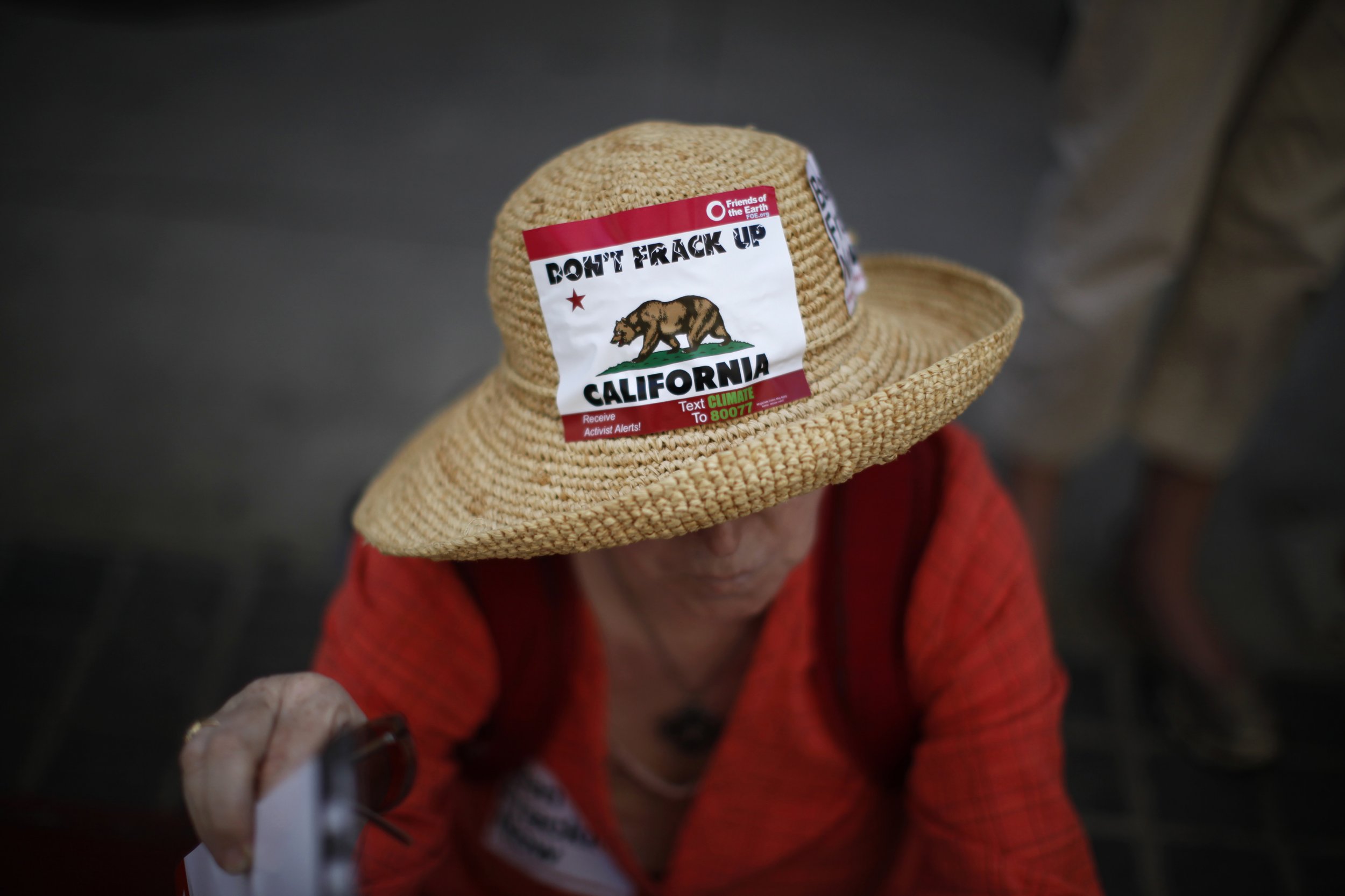
The Environmental Protection Agency (EPA) has found no evidence that hydraulic fracturing, commonly called fracking, led to "widespread, systemic impacts on drinking water," it announced today. It did, however, find "specific instances where one or more mechanisms led to impacts on drinking water resources, including contamination of drinking water wells." The agency's findings are the result of four years of research spurred by wide-ranging concerns that fracking is polluting drinking water.
Hydraulic fracturing is a process used by oil and natural gas companies to stimulate energy-producing wells. A solution, often composed of sand and chemicals suspended in water, is injected into a drill hole in underground rock formations, breaking the rock apart and allowing natural gas and petroleum to flow more freely. Fracking is used to reach deep-seated deposits many thousands of feet beneath the ground's surface. Over the years, concerns have been raised that the process leaches chemicals into nearby water sources; at least one major study has shown that methane released by fracking can taint nearby drinking water.
The EPA looked at five stages in which drinking water might be affected by the fracking process: water acquisition, the collection of ground or surface water to be used in fracking; chemical mixing, when water is mixed with sand and chemicals to create the solution to be used in fracking; well injection, when the solution is pumped into the earth to break apart geologic formations; flowback and produced water, when the fracking solution returns to the surface; and disposal, when the chemical-laced solution is removed.
Drinking water quality was not affected in any of those cases in any systemic way, the agency said. Though the EPA did find a few instances where drinking water resources were impacted, "the number of identified cases, however, was small compared to the number of hydraulically fractured wells," according go the report.
Widespread adoption of fracking in 2003 has stimulated an energy boom in the United States. In 2014, the U.S. overtook Russia and Saudi Arabia as the world's largest energy producer, thanks largely to fracking. And proponents in the oil and gas industry lauded the EPA's findings. "After more than five years and millions of dollars, the evidence gathered by EPA confirms what the agency has already acknowledged and what the oil and gas industry has known," said Erik Milito, a spokesman for the American Petroleum Institute, an industry group, in a statement. "Hydraulic fracturing is being done safely under the strong environmental stewardship of state regulators and industry best practices."
But critics of the practice worry that it may cause lasting harm to the planet. Food and Water Watch, an anti-fracking group, issued a statement calling the EPA's findings "an industry-driven study that will be used to justify the industry's desire to drill."
Update: This story was updated to include the EPA's findings that there were some specific instances where drinking water resources were impacted by hydraulical fracturing mechanisms.
Uncommon Knowledge
Newsweek is committed to challenging conventional wisdom and finding connections in the search for common ground.
Newsweek is committed to challenging conventional wisdom and finding connections in the search for common ground.
About the writer
Taylor is a general assignment reporter for Newsweek where he writes about U.S. politics, crime and courts, religion, marijuana law, ... Read more





